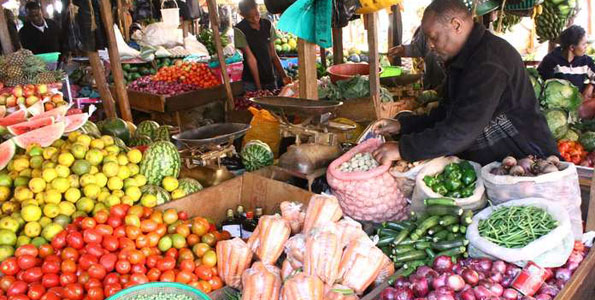The International Monetary Fund (IMF), says the Ukraine war and COVID-19 have raised the number of food insecure in Sub-Saharan Africa (SSA) to 123 million in 2022.
This is contained in the overview of the Topic “Analytical Corner: Climate Change and Food Insecurity in Sub-Saharan Africa delivered at the
IMF and The World Bank Group 2022 Annual Meetings.
The annual meetings is holding in Washington DC from Monday, Oct.10 to Sunday, Oct. 16, 2022.
The discussion was led by Mai Farid, African Department, IMF.
Farid said that successive shocks from the Ukraine war and the COVID-19 pandemic have heightened food prices and depressed incomes.
She said this had raised the number of food insecure in SSA by at least 30 per cent to 123 million in 2022.
Farid said the rising frequency and intensity of droughts, floods, and cyclones as well as higher temperatures and sea levels are set to exacerbate this number.
“The wide-ranging macroeconomic consequences of food insecurity can have lasting adverse effects, especially on economic growth and poverty. ”
She said addressing the lack of resilience to climate change would require careful policy prioritisation against a backdrop of substantial financing and capacity constraints.
Farid said there were some key areas of focus that could be most impactful in addressing the food insecurity in the region.
She said one of the key areas was fiscal policies focused on social assistance and efficient public infrastructure investment.
“This can improve poorer households’ access to affordable food, facilitate the expansion of climate-resilient agricultural production, and support quicker recovery from adverse climate events”
She said another area was improving digitalisation and telecommunications to support access to finance.
“This is key to stepping up private investment in agricultural resilience and productivity thus improving the earning capacity of poorer rural and urban households”
Farid said greater regional trade integration, complemented with resilient transport infrastructure was another key area in addressing food insecurity in SSA.
‘”This enables sales of one country’s bumper harvests to its neighbors facing shortages, substantially improving households’ welfare by reducing food insecurity and promoting the stability of food prices.”
She said the international community could help with financial assistance, especially for social assistance and key infrastructure areas, capacity development, and facilitating transfers of technology and know-how.




